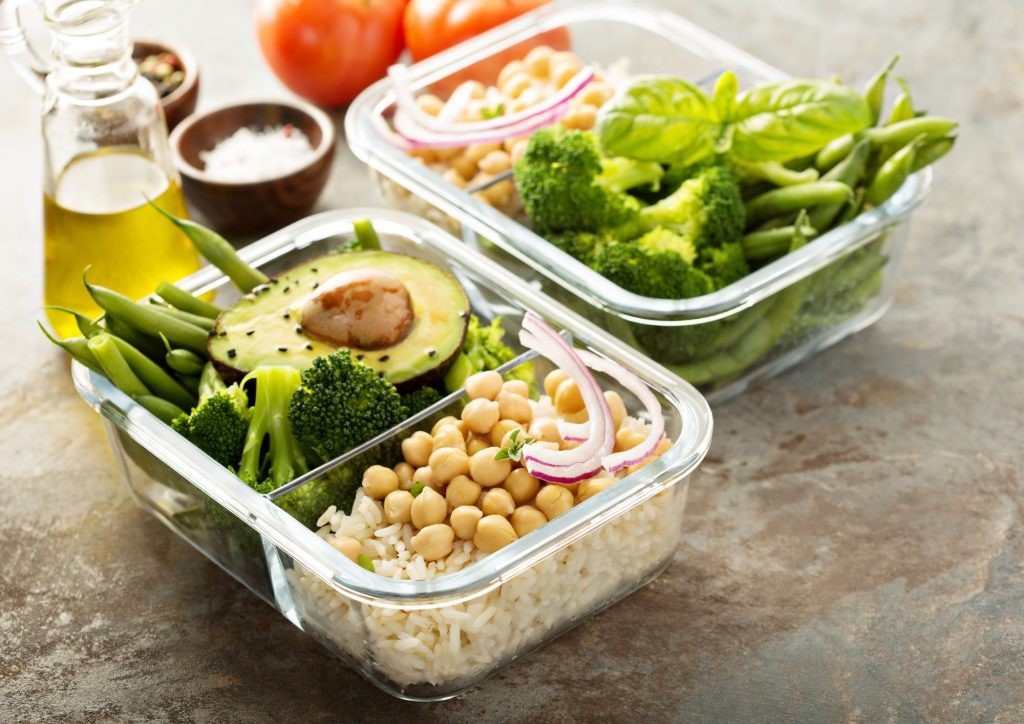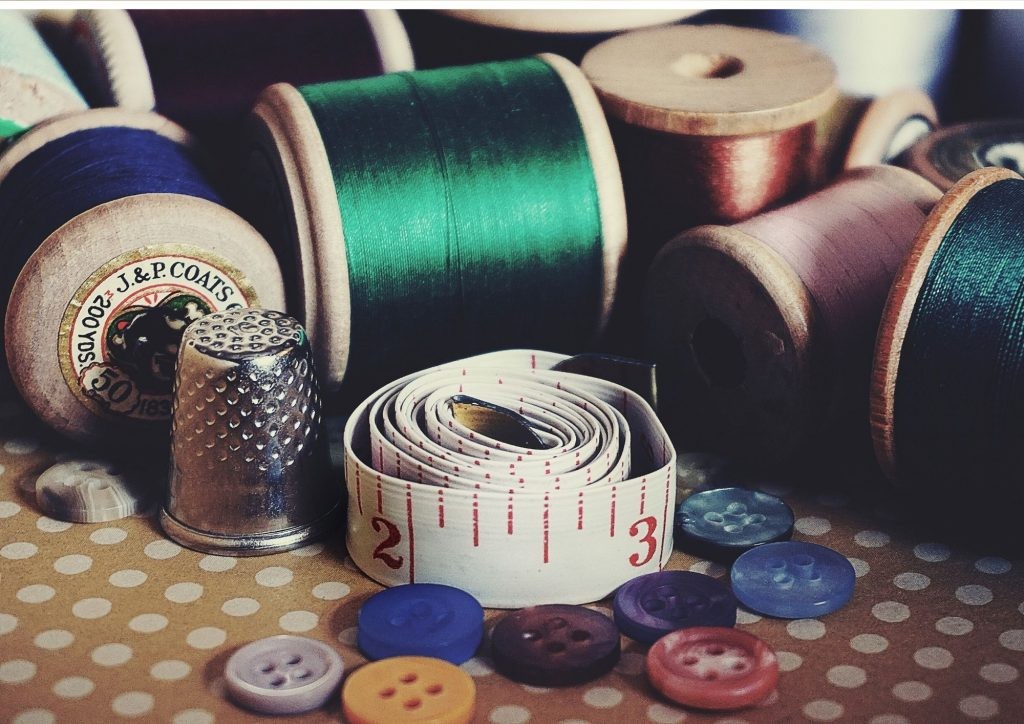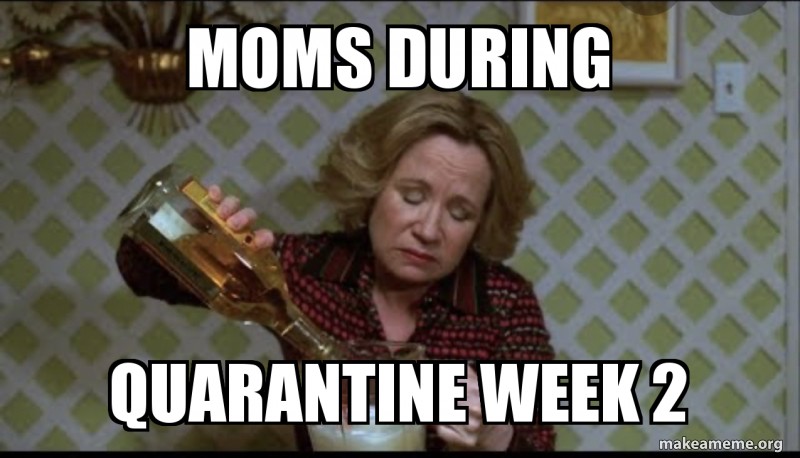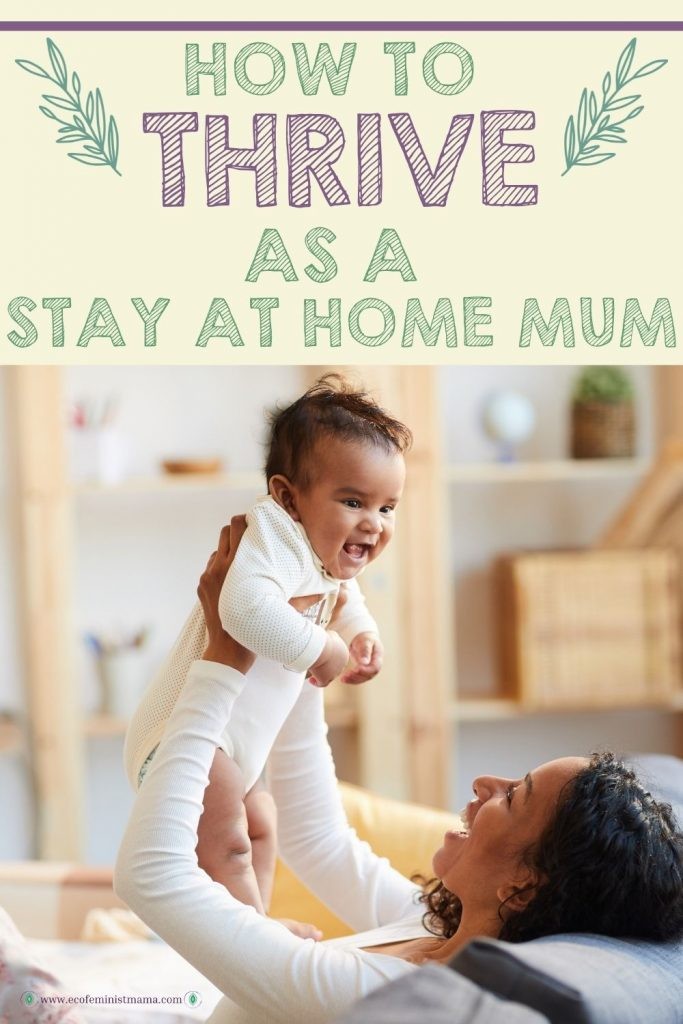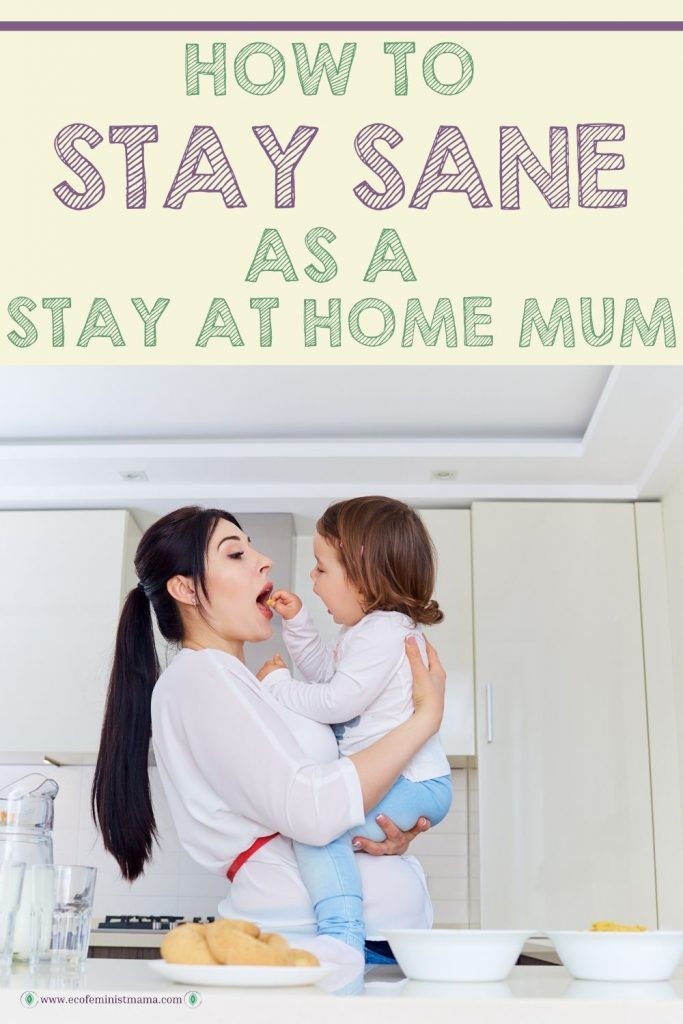If you think about jobs a modern, empowered, feminist-leaning woman might do, let’s face it – being a stay at home mum probably isn’t one of them.
The women’s liberation movement of the 1960s quite rightly drew attention to the rough deal women were getting by being domestic by default, with feminist writers like Germaine Greer and Betty Friedan leading the revolution that brought about things such as access to the contraceptive pill.
But since then, the stay at home mum has become a symbol of women’s oppression – but is that really what the experience of full-time mothering needs to be? In this article I’m going to look at some of the challenges of being a stay at home mum and share some ideas on how you can thrive, not just survive in this role.
Table of Contents
BABY! This is a reusable block, so whatever edits you make in it will apply everywhere it is used. If you want to remove this disclaimer from a post then be careful to delete the parent block (type ‘Reusable Block’ – icon is lego brick), and not to delete the group, image and/or the paragraph blocks (cos then they’ll be deleted from every instance of the reusable block).
Disclaimer: This post contains ethical affiliate links that I genuinely recommend. I may receive a small percentage of any purchases you make as a result of clicking those links. This comes at no extra cost to you and helps me to run this site. Read my full disclosure
Are stay at home mums happier?
“Working mums” (I hate that phrase – all mothers are working mothers) i.e. mothers who do paid work as well as mothering, are shown to be happier than stay at home mums. While children growing up with a stay at home mum do better in school and have less behavioural issues such as aggression, it seems that the benefits come at the expense of the mother’s wellbeing.
Women perform more than 2.5 times more unpaid domestic and care work than men regardless of whether or not they are stay at home mums. We also know from the issues raised by the global pandemic that having a paid job as well as an unpaid one doesn’t even out the gender disparity when it comes to domestic work.
Not only did the worldwide COVID-19 lockdown, which forced the majority of the world’s population to stay home, not lead to a more even sharing of domestic work between men and women, it actually appeared to increase the load for women. This was true whether or not they worked outside the home, so it’s not just the act of all the domestic duties that come with being a stay at home mum that makes for a less happy life. Women with other paid work are having to do that domestic work as well, so none of us are getting a good deal.
How valuable is a stay at home mum?
If you’re reading this you’re probably a stay at home mum, so I don’t need to tell you this but I thought I’d back up what you already know with data: stay at home mums do the the equivalent of 2.5 full time jobs. That’s an average of 98hrs per week of parenting and household management.
If you were paid the average UK hourly rate of £15.14ph to do it, you’d be earning £77,153.44 a year. If you were paid a more decent hourly rate akin to a managerial role (and, let’s face it, stay at home mums are definitely in a managerial role) like £22ph, you’d be earning £112,112.
How do stay at home mums survive?
One reason why stay at home mums might be less happy than their career-pursuing equivalent is the amount of domestic work we do that not only goes unpaid, it goes largely unnoticed.
On top of that, successful household management and baby/child wrangling is usually a result of solid and predictable routines. Children’s moods, behaviours and sleep patterns are all improved by having predictable routines in place but, for us mums, there’s a fine line between solid routines and plain old tedious monotony.
Social isolation is also an issue, with the days of a stay at home mum being largely spent in the company of babies and children rather than like-minded adults. The pandemic, of course, has compounded this.
So how on Earth do stay at home mums survive? Are there even any benefits to being a stay at home mum?
Well, let me first point out the biggest, most obvious and supremely important benefit of all: you are raising your kids when you are a stay at home mum. No-one else, YOU. And, as their mother, you are biologically the most qualified person to do that. This is true even on those days where you feel like you have no idea what you’re doing.
Babies and young children thrive with a strong and healthy attachment with their birth mother in particular, so making it your primary job in life to nurture them is a true gift to their development and wellbeing.
You get to be the biggest influence on their little life. If you are intentional about it, you can provide a foundation for a new human who grows up to be emotionally secure, compassionate, empathetic and with a strong sense of social justice. All of those qualities are things we sorely need in the future if you look at some of our current world leaders.
Ultimately you are raising the next generation and, as a stay at home mum, you can choose to see yourself as someone with enormous power. As the saying goes,
the hand that rocks the cradle is the hand that rocks the world.
10 tips to thrive as a stay at home mum
All that said, I’ve been a stay at home mum (now a work-at-home-mum, which has its own challenges). Honestly I do know that the thankless tasks and Groundhog Days can get you down.
That’s why I’ve put together a list of things you can do to make sure you thrive as a stay at home mum. I want you to truly step into your role as a powerful woman raising the next generation of awesome new people.
I genuinely believe that mothering is the most important job in the world. If you are doing it full time, give yourself a huge round of applause for committing all your time to doing it.
Now, let’s help you live your best life while you’re at it.
1) Identify what’s important
The first trick to thriving as a stay at home mum is to identify what is truly important to you. This step is crucial for two reasons:
- You can’t thrive if you don’t know what thriving would look like. Spending your time doing what’s important and meaningful to you is key to thriving
- You won’t have time to do what’s important and meaningful if you’re spending too much of your time doing things that are unimportant and meaningless
Write a list of what truly matters in your life. Don’t get fancy, you don’t need a new bullet journal or a Pinterest printable: a pen and paper will do.
I’m not talking here about a list of chores or a To Do list of important things to do, I’m talking more about values. What is it that really matters in your life? In your children’s life/lives?
For me, this list would look something like:
- Spending quality time together as a family
- A strong attachment with Ursula
- Having a sense of purpose
- Getting enough rest
- A healthy relationship with food and my body, and modelling it to Ursula
Those are just a few ideas. Your list may be longer or shorter but try and identify what really matters to you.
2) Streamline, mechanise, batch or dump what isn’t important
Next, look at your calendar, timetable, To Do List or whatever means you use to keep a track of what you’re doing with your time. If you tend to wing it, write out what a typical day looks like for you. Make sure you include your daily screen time count from your phone, looking at how much is spent on social media vs something practical like paying bills via mobile banking.
Now, with your list of what’s important as your guide, identify what you’re spending your time on that really doesn’t matter to you.
Some things you spend a lot of time doing are important on a practical level but kill your spirit because they don’t truly matter to you (I’m thinking laundry, cooking, cleaning). These can be streamlined, batched, mechanised, delegated or sometimes even dumped altogether.
Can your family afford a cleaner, even just once a month, to free up some of your time and energy? If not, is there a way to be more efficient in the way you clean?
I’ll give you an example from my own life to show you the power of streamlining your processes.
Although I’ve been meal planning for a while, (the most obvious way to make cooking simpler) I was spending waaaaaaay too long every Saturday morning doing it. Saturday is when my husband takes care of our daughter all day and there I was spending the entire morning meal planning. That’s not an activity that truly matters to me, in case you hadn’t guessed.
I identified that what really matters to me when it comes to meals is that:
- the majority of them are home cooked
- they are nutritionally complete and tasty
- we sit down to eat them as a family at the table
Then I heard the Lazy Genius principle of “Decide Once” and I saw the light. I needed to simply decide once what we were going to eat in a week so I could free up my Saturday mornings to do something more meaningful.
For the sake of variety, I made four weeks’ worth of meal plans in one go and put them on rotation.
I filled in each meal on my computer so it’s printable every month. I also made sure any recipes I needed were printed out or Pinned on my Pinterest boards.
Lastly, I freshen up the menu and print out a new rotation when the seasons change to a) keep things interesting and b) make sure we eat appropriately to the season (stew season is finally here, yay!)
This system cuts right down on the amount of thinking I have to do. Now on Saturday mornings, I simply pull out the next week’s already-complete meal plan and do my online order in under half an hour.
I also do things like make additional marinade sauce to freeze, so life is even easer next month when I make that Pad Thai again. (By the way, I pin lots of plant-based meal ideas on Pinterest so give me a follow for some inspiration)
If you’d like to give this method a go, you can download the 4-week rotating meal plan template I made below. It also includes space for your shopping list and, if you cook different food for your children, there’s enough room on each day to type in a second meal.
3) Make sure you’re mothering with a conscience
Since we are raising the next generation we have a huge amount of power in terms of helping to shift the direction of humanity. When you’re a stay at home mum you have even more influence, so why not do your best to absolutely smash it when it comes to your child’s emotional and psychological development?
Mothering with a conscience means doing the best we can to nurture our children’s needs through authoritative or ‘gentle’ parenting. I’ve written a complete beginner’s guide to how to get started with gentle parenting to get you going.
Once you’ve started mothering with intention and with the ambition to help raise a new generation of extraordinary people, the daily grind of stay at home mum life will have more meaning.
4) Declutter – clear the decks to make sure your life runs smoothly
I don’t want to give you more shit to do, mama. But let’s face it, SO much of our time is often wasted on the simplest act like trying to put something away.
Let me set the scene: you’re trying to set the table for lunch.
You need to put a toy away in order to get a clear table, so you go to the living room to put the toy where it belongs. When you get there, you find a whole load of other toys on the floor so you figure you may as well put those away while you’re at it. You get side-tracked for a little while, but no big deal.
Then you spot an empty mug and used plate on the sideboard, so you bring it back to the kitchen to put in the dishwasher. Only the dishwasher is still full so you start emptying it. In order to put away the big salad bowl from last night, you have to move a load of other bowls out of the way when you drop one and it breaks. Bugger.
Okay, so now you’re clearing up broken glass from the floor, vacuuming up all the tiny pieces, ready to put the remains safely in the bin when you realise you really need to empty the bin.
So you take all the rubbish out to the bins outside, trip over a garden toy and decide to go and put it away in the shed……
Do you even remember how this all started? LUNCH! That was like 15-20 minutes ago and you STILL don’t even have a clear table!
Tell me this isn’t just MY life. Or at least is was, I’m getting much much better at it now thanks to some major decluttering and organising of storage and other systems. These days it means I don’t even get sidetracked by the messy toys on the living room floor to begin. This is because a) we’ve gone minimal with toys, only keeping high-quality open-ended ones that are actually loved, and b) they’re so easy to put away when they’re finished with that even my daughter is getting good at tidying up.
I achieved this by first taking the free Clutterbug What Clutterbug Are You? mini course to find out my organising style. This alone was revolutionary. I found out I’m a butterfly, which means I organise completely differently to most mainstream organising systems. I prefer my systems visual and with as little micro detail as possible, which explained why I’ve never been successful in using things like planners and filing drawers. They’re both hidden, out of sight systems that are full of small detail – a butterfly’s worst nightmare! So now I have a big whiteboard on the wall to organise my week and big tubs and bins to store things all in one category – no micro sorting for me, thank you!
I was so impressed with how the Clutterbug organising style quiz improved things for me quickly that I invested in the Certified Organisational Specialist course. Although a big bonus of the course is that you come out certified and able to promote yourself as a professional organiser (something I’m not interested in, but you might be! We’ll talk about side hustles later…) the bulk of the course teaches you how to declutter and organise your space in a way that works for you and your organising style.
The course leader Cas even teaches you how to minimise the amount of stuff in your life beyond simply asking yourself the Kondo Cliché question of “Does it spark joy?”, which really doesn’t work for everything. I mean, whose airbed sparks joy in them?! Probably still need to keep it 🤷🏻♀️
By clearing the decks of the non-essentials and learning how to reorganise your home according to your personality, you can make your life soooooo much easier and simpler. When you don’t spend your time hunting high and low for things, or waste hours getting distracted by day-to-day clutter, you can use that time to do what actually matters to you.
5) Organise your time
Speaking of organising and time, let’s talk about organising your time! Warning: there’s a bit of tough love coming up here.
I know SO many mums (and their kids) who miss out on fun stuff because they haven’t organised their time properly. They’re too late to sign their kid up for some amazing event because they didn’t realise the deadline was coming up. They have to pull out of a mum meetup at the last minute because time ran away with them and they couldn’t get out the door. So many times I was all set to meet up with someone and they texted me last minute to say they completely forgot and now they can’t make it.
Now, believe me – I know what it’s like to have those days where everything is going wrong and you can’t make something happen. There’s no judgement, we’ve all been there. But that’s very different to regularly feeling out of control of your timeline, constantly rushing to catch up with life and just generally not having a grip on deadlines, commitments and time management.
These days, I feel like there’s very little standing in the way of us getting our time-shit together. We (mostly) all have phones with calendars and reminders that we can set to remind us of what we need to do. There are a multitude of free resources such as printable To Do Lists or apps like Kanbana, which uses a very helpful system to help you keep track of your to dos.
Again, the Clutterbug free mini course will help you figure out the best organisational style for your personality so you can start to implement a time management system that works for you. Maximise and take control of your time so you can spend it on something important.
6) Consider a side hustle
I was torn over whether or not to have this as a tip. Recently I saw someone on social media make the very valid point that full-time mothers have all this extra pressure on them to do a side hustle, even though the work of mothering is already 2.5 jobs and completely valid work by itself. I completely agree with that and I encourage you to seek fulfilment as a full-time mum (Tip #7 may help).
BUT, I’d be lying if I said that my own side hustle (i.e. this blog) didn’t bring me huge amounts of satisfaction and fulfilment that I just didn’t feel before I started it.
I think the fact that I’m talking about mothering, drawing on my experience and truly trying to help other mums like me makes it all part of the same sense of purpose. I’m super proud of all the hard work I do to raise Ursula. And I use this blog to both help myself process my own experiences and use those experiences to help others. It’s very rewarding.
If you think blogging might be something you might be interested in, I absolutely recommend checking out Suzi at Start A Mom Blog. It was her that really helped me kickstart this blog and take it from a nice idea I didn’t think I had time for, to a reality that is actually helping people every single day.
What I found so inspiring about Suzi is that she has three children and still managed to find the time to follow her passion of blogging. When her kids were young she made YouTube videos while nursing her babies, so you know she gets how hard it is to get things done as a mum.
Even if you don’t think you’re a very good writer or know what you’d blog about, she can help you find your voice and get it out there into the world. That to me is the power of blogging for mothers. Even if you never make a penny out of it (although that’s a nice bonus!), it’s about getting the voices of hardworking mums like you out into the world. We all deserve to have our stories heard and we all have something to offer the world. So have a think about whether putting your unique voice out there might help you finally thrive as a stay at home mum.
7) Bring them into your life, don’t just revolve yours around theirs
This is a mindset shift that I learned from a former friend of mine. She told me that she became utterly miserable when she had her son. She said she had lost her old life and it had been replaced by baby groups and sick-stained muslins. (By the way, this is a very common experience for new mums and often isn’t postnatal depression so much as it is ‘matrescence’, which you can learn about in this blogpost).
Anyway, my friend realised that the life she found herself in wasn’t fulfilling enough for her so she decided to bring her son into HER world instead of losing herself in Mum World.
As a stage artist and photographer married to a theatre actor, that meant bringing her son to her husband’s rehearsals so she could photograph them. She took him on trips to the Tate Modern and brought him into their mutual world of festivals, art galleries and fringe theatre. They all had a blast as a family and the baby got LOADS of valuable sensory input and stimulation without expensive sensory classes. Meanwhile, the friends and colleagues around them all chipped in to help them keep baby happy and looked after.
Now not all of us live such a fun and glamourous life, it must be said! But if you’re finding yourself feeling unfulfilled by endless baby groups, after-school activities and toy-tidying, have a think about how you used to spend your time before you became a mum. What did you do that you really loved, that made you feel like you? Is there a way you can do those things and involve your child/ren?
8) Create, don’t compare
“Comparison is the thief of joy” as Theodore Roosevelt (probably) said and he had a very good point.
Our society has worked very hard for a long time to pit women against one another, encouraging us to see each other as competition. When you put that in the context of the structure of Motherhood (a social construct and institution in itself), we often end up beating ourselves up for not being as good a mother as we ‘should’ be. That might look like:
- Comparing Instagram mums’ tidy homes to your absolute bomb site
- Wondering what someone at your baby group did to get their 3m old sleeping through the night when yours doesn’t
- Looking at another mum’s lean postpartum body and assuming they ‘bounced back’ easily
Whatever it looks like for you, try intentionally not comparing yourself to others and focus instead on creating something. Create more than you compare and create more than you consume. This might mean unfollowing (or at least muting) certain voices on social media and amplifying cheerleading voices instead.
Ideas of things you can create on a regular basis include:
- Sensory trays and scenes for your children to play with (see Pinterest for inspiration)
- Fun and visually playful meals (follow Kids Eat In Color on IG for ideas)
- A crafting project just for yourself
- Start a mum blog
- Start journaling or scrapbooking
- Create a vision board
- Join a craftivism project
- Dress your home for the season
- Create rituals for nature festivals such as decorating and lighting a celebration ring
Don’t forget to clear the decks and declutter as part of the process. This is especially important if you’re not feeling particularly creative right now. Creativity is more likely to be found when there’s the psychological breathing room that an uncluttered and organised home brings.
9) Work on your addictions and dependencies
Alright, I’m going to get a bit tough on you again here but it’s only because I care. If you are dependent on anything external to make you feel better, it’s time to shine a light on it.
If you’re not sure whether you’re dependent on something, think about what you automatically turn to when life gets rough. Then ask yourself whether that’s really serving you. Some obvious and not-so-obvious things you may have become emotionally dependent on are:
- Food/emotional eating
- Dieting and other disordered eating practices created by dieting e.g. binge eating/eating in secret
- Screen time
- Staying up later than you know you should to get enough sleep
- Caffeine
- Illegal drugs
- Tobacco
- Painkillers
- Gossip
- Alcohol
- Gambling
- Social media
- Shopping
- Self loathing/criticism
Some of the items on that list are socially acknowledged for being problematic (tobacco, for example). But many of them (such as drinking alcohol and caffeine, online shopping and dieting) are not just completely acceptable. In the online mum’osphere they’re positively encouraged and celebrated. For example, how many pandemic memes did you see along the lines of “This lockdown is sponsored by gin”?
Now honestly, I am NOT getting all Judgy McJudgerson on you. I’ve turned to wine at the end of a stressful day as much as the next mum. In fact, at my peak I was getting through about half a bottle of wine every night, sometimes more. So if you’re someone who counts down the seconds until Wine O’Clock, I really am NOT judging you. I’ve done it too and, hey, maybe I’ve even done it more than you.
But the thing is, even mild alcohol dependence makes your problems worse, not better. It’s a depressant and even moderate users find it easy to fall into the trap of feeling like life looks better with a glass in their hand. That’s dependence and the beginnings of full-on addiction. Aside from the many health risks associated with alcohol consumption, it’s also not the way to deal with the stresses of motherhood.
Likewise caffeine consumption is something we all joke about as the only way we ‘survive’ the day. But its effects on the body aren’t exactly positive. It causes havoc to your reproductive, digestive and circulatory systems. It’s also very easy to find yourself relying on it more and more to get enough energy to function.
I’m not saying you need to immediately stop drinking wine and coffee and live the life of the Super Crunchy. I’m certainly not trying to deprive you of the simple pleasures of life, especially when you’re working so hard. All I’m saying is, if you find you “can’t make it through the day” without… whatever it is, then you need to stop and ask yourself why.
Why do you need external stimulants or behaviours in order to ‘cope’ with motherhood? What need are you trying to fulfil when you reach for the coffee, cupcakes or Chianti? Is it really serving you to be dependent on these substances and/or behaviours or are getting in the way of your living your best life?
I’m not an expert on helping you solve any of the above issues, but here are a few folks who are:
- Leslie Hooper – for breaking free from dieting, emotional eating, binge eating and other disordered eating practices
- Stephanie Miramontes – for healing body image issues
- Anna Croucher (The Kinder Mind Coach) – mindfulness for mums coach
- Annie Grace (This Naked Mind) – freedom from alcohol dependence
- Screentime Lifeline – breaking free from screen dependence
10) Nurture your own identity
Finally, I want to end with what this whole post boils down to: making sure you nurture your own identity.
It’s so easy to get lost in our children, but we don’t serve them by doing that. Think about it, which statement would you prefer to hear your adult child saying about you in 20 years time?
“My mum was so self-sacrificing, she always put our needs above her own. Nothing made her happier than making us happy.”
VS
“My mum is such a phenomenal woman with an amazing life. She’s funny, a really talented (insert skill) and warmhearted. She loves us to pieces and did her very best for us. And she made sure she always made time to take care of herself as well as us.”
Well I think it’s a no-brainer, right?? I know I want my daughter to see and remember me not just as someone who ran around after her. Or as someone who made herself miserable for the sake of putting her needs first. I want her to think of me as someone with an identity of my own beyond being a mum.
Of course I want her to think I’m the best mum in the world and recognise how hard I work at my mothering. I also want her to know what music I love and what my favourite decade for fashion is. The only way she’ll ever know all this is if I don’t get lost in her. Instead I need to make sure that I intentionally keep my non-mum identity alive.
If you’re struggling to remember your pre-mum self, here are a few starter questions for you:
- When you were a kid, what did you want to be when you grew up?
- What was your favourite TV show when you were 5 vs when you were 10?
- When was the best decade for music?
- What was your favourite subject at school?
- Apart from becoming a mother, what’s one thing that happened to you that changed your life?
- Who would you say is your role model and why?
- What’s your favourite pre-mum picture of yourself and why? (Bonus tip: make that photo your phone wallpaper!)
- What book could you read again and again and never get bored of?
- If you could go back to any time in your life, what would it be and why?
So I hope you’ve got some ideas from this blogpost about how you can thrive as a stay at home mum. Please do get in touch with me and let me know if anything here resonates with you and makes a difference. I read and reply to every email so I’d genuinely love to connect with you.
Sending you much love and joy in your stay at home mum journey.



